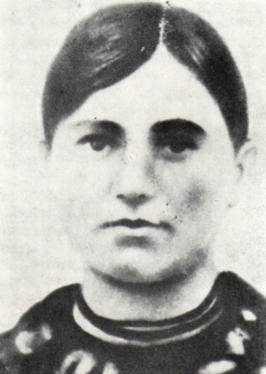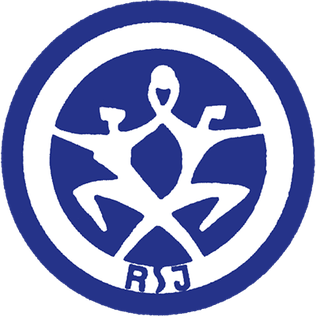The Yugoslav First League was the premier football league in the Kingdom of Yugoslavia (1918–1941) and Socialist Federal Republic of Yugoslavia (1945–1992).

The Yugoslavia national football team represented Yugoslavia in international association football.

The League of Communists of Yugoslavia, known until 1952 as the Communist Party of Yugoslavia, was the founding and ruling party of SFR Yugoslavia. It was formed in 1919 as the main communist opposition party in the Kingdom of Serbs, Croats and Slovenes and after its initial successes in the elections, it was proscribed by the royal government and was at times harshly and violently suppressed. It remained an illegal underground group until World War II when, after the invasion of Yugoslavia in 1941, the military arm of the party, the Yugoslav Partisans, became embroiled in a bloody civil war and defeated the Axis powers and their local auxiliaries. After the liberation from foreign occupation in 1945, the party consolidated its power and established a one-party state, which existed in that form of government until 1990, a year prior to the start of the Yugoslav Wars and breakup of Yugoslavia.

The Croatian Football Federation is the national governing body of football in Croatia. It was originally formed in 1912 and is based in the capital city of Zagreb. The organisation is a member of both FIFA and UEFA, and is responsible for overseeing all aspects of the game of football in Croatia. The current president of HNS is Marijan Kustić.

The Football Association of Yugoslavia (FSJ) was the governing body of football in Yugoslavia, based in Belgrade, with a major administrative branch in Zagreb.

The Savez izviđača Bosne i Hercegovine is the state Scouting organisation of Bosnia and Herzegovina. It was founded on 17 December 2011 through the merger of the three constituent organisation of its predecessor, the Savjet izviđačkih organizacija u Bosni i Hercegovini, which was a member of the World Organization of the Scout Movement since 1999. The coeducational Council of Scout Associations in Bosnia and Herzegovina has 1,250 members as of 2011.
The Scout movement in Yugoslavia was served by different organizations during the existence of the multi-ethnic state.
Ice hockey in Germany is one of the more popular sports, and ranks behind Handball and football in spectator favour and meaning. Ice hockey is organized today in Germany by the Deutsche Eishockey Liga, the highest professional league, and by the Deutschen Eishockey-Bund ice hockey federation, which is the sport's federation in Germany and a member of the International Ice Hockey Federation.

HŠK Građanski, also known as 1. HŠK Građanski or fully Prvi hrvatski građanski športski klub, was a Croatian football club established in Zagreb in 1911 and dissolved in 1945. The club had a huge influence on the development of football in Croatia and Kingdom of Yugoslavia and achieved its greatest success in the period between the two World Wars.

Marija Bursać was a member of the Yugoslav Partisans during World War II in Yugoslavia and the first woman proclaimed a People's Hero of Yugoslavia. Bursać was born to a Bosnian Serb farming family in the village of Kamenica, near Drvar. After the invasion of Yugoslavia by the Axis powers and their creation of the Independent State of Croatia in April 1941, Bursać supported the Partisan resistance movement led by the Communist Party of Yugoslavia (KPJ). Like other women in her village, she collected food, clothing, and other supplies for the Partisan war effort. Bursać became a member of the League of Communist Youth of Yugoslavia in September 1941. The following August she was appointed political commissar of a company of the 1st Krajina Agricultural Shock Brigade, which harvested crops in the Sanica River valley, and was admitted to the KPJ at the end of that summer.

Paul Loicq was a Belgian lawyer, businessman and ice hockey player, coach, referee and administrator. He played ice hockey for Belgium men's national ice hockey team and won four bronze medals from in 1910 to 1914. He was a leading supporter of the efforts to introduce ice hockey at the Olympic Games, and served on the organizing committee for ice hockey at the 1920 Summer Olympics. After playing in the 1920 Olympics he served as president of the Royal Belgian Ice Hockey Federation from 1920 to 1935, and as president of the Ligue Internationale de Hockey sur Glace (LIHG) from 1922 to 1947, which was later known as the International Ice Hockey Federation (IIHF). During his time as president the LIHG more than doubled its membership and welcomed the first national associations from Asia and Africa, and the LIHG began hosting its annual Ice Hockey World Championships in 1930. He was also an international ice hockey referee from 1924 to 1937 at the Olympic Games, the Ice Hockey World Championships and the Ice Hockey European Championships. He served in the Belgian Army during World War I and World War II, achieved the rank of colonel, and represented Belgium as legal counsel at the Nuremberg trials.

Yugoslav Tennis Association was the governing body of tennis in Yugoslavia.

The Basketball Federation of Yugoslavia was a non-profit organization and the national sports governing body for basketball in Socialist Federal Republic of Yugoslavia. Until 1991, the organization has represented SFR Yugoslavia in FIBA and the men's and women's national basketball teams in the Yugoslav Olympic Committee.

The Handball Federation of Yugoslavia was the governing body of team handball in SFR Yugoslavia. It was formed in 1949.
The Serbian Ice Hockey Association is the governing body and member of the International Ice Hockey Federation (IIHF) that oversees ice hockey in Serbia. The IIHF recognizes the Yugoslavia, which joined in 1939, as the predecessor to Serbia, which officially became a member in 2007.

The League of Socialist Youth of Yugoslavia (SSOJ) was the youth movement, member organisation of the Socialist Alliance of Working People of Yugoslavia (SSRNJ). Membership stood at more than 3.6 million individuals in 1983. It was originally established as the League of Communist Youth of Yugoslavia (SKOJ) on 10 October 1919 and retained that name until 1948. Although it was banned just two years after its establishment and at times ruthlessly prosecuted, it continued to work clandestinely and was an influential organization among revolutionary youth in the Kingdom of Yugoslavia, and consequently became a major organizer of Partisan resistance to Axis occupation and local Quisling forces. After World War II, SKOJ became a part of a wider organization of Yugoslav youth, the People's Youth of Yugoslavia, which later became the League of Socialist Youth of Yugoslavia.

Šime Spitzer was a Croatian Zionist, notable member of the Jewish community Zagreb and general secretary of the "Federation of Jewish confessional communities of Yugoslavia".

The Yugoslav Cycling Federation or BSJ was the national governing body of cycle racing in Yugoslavia.
The History of the International Ice Hockey Federation which spans over a hundred years, chronicles the evolution of international cooperation in ice hockey. Among major achievements accomplished in that time is the standardization of playing rules and the establishment of tournaments.















